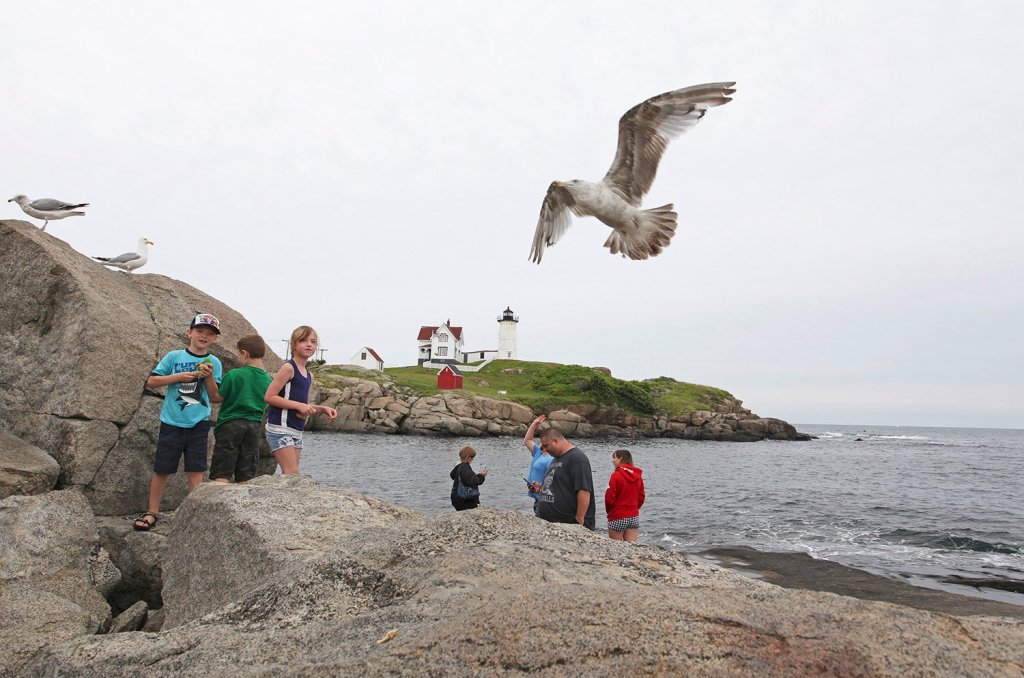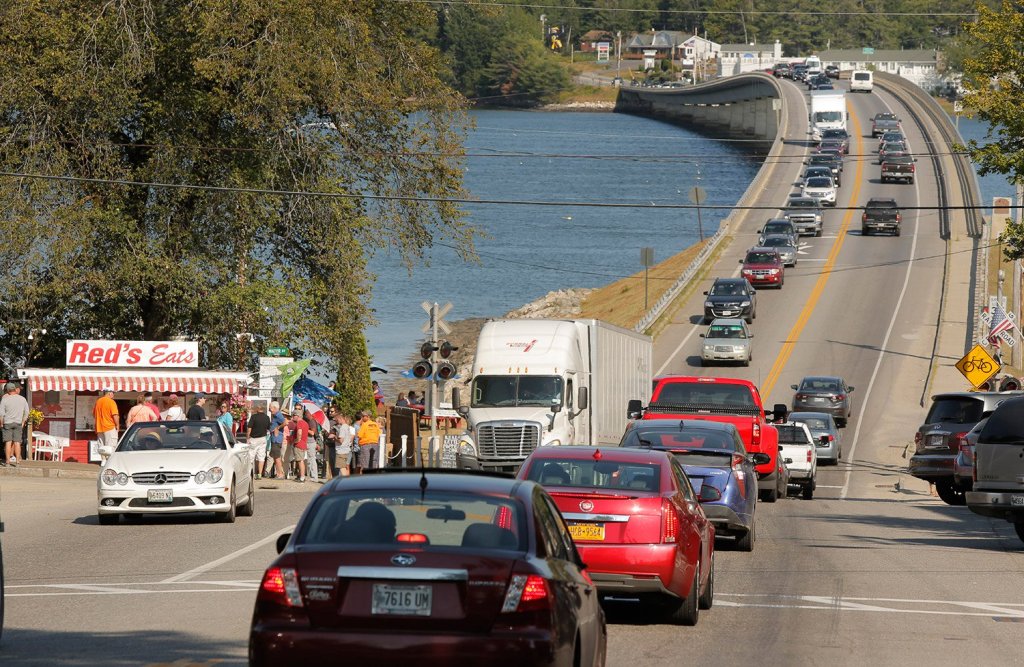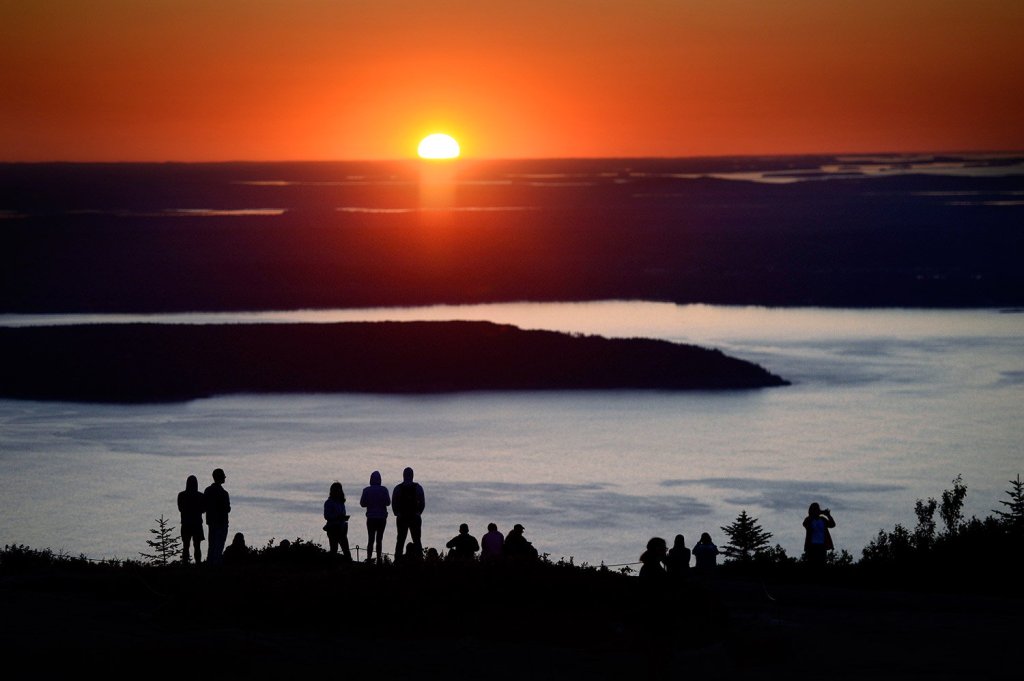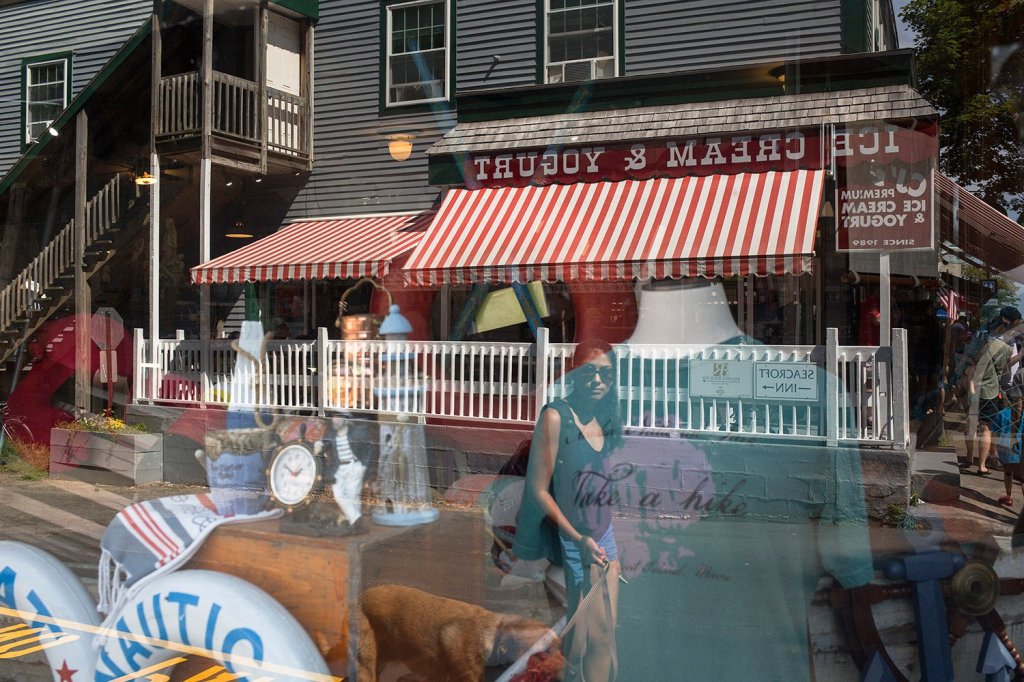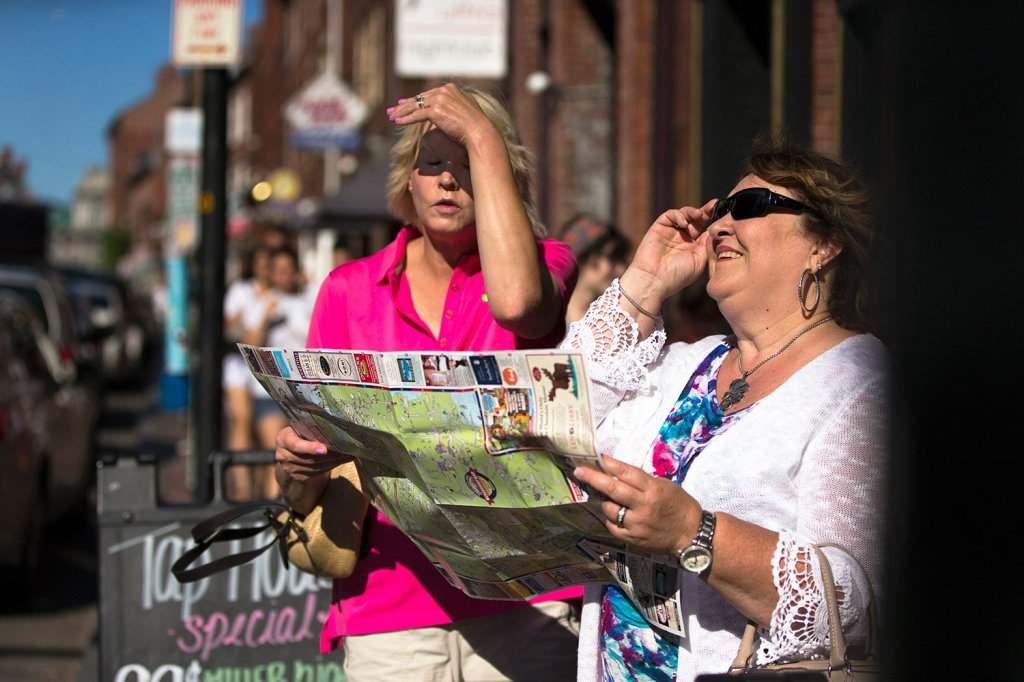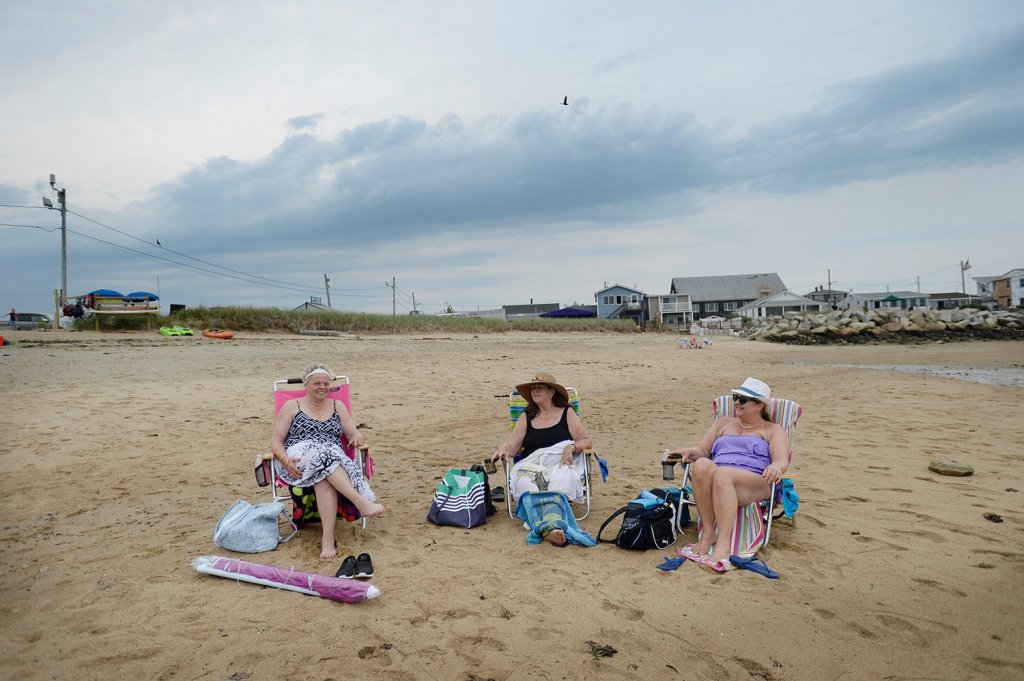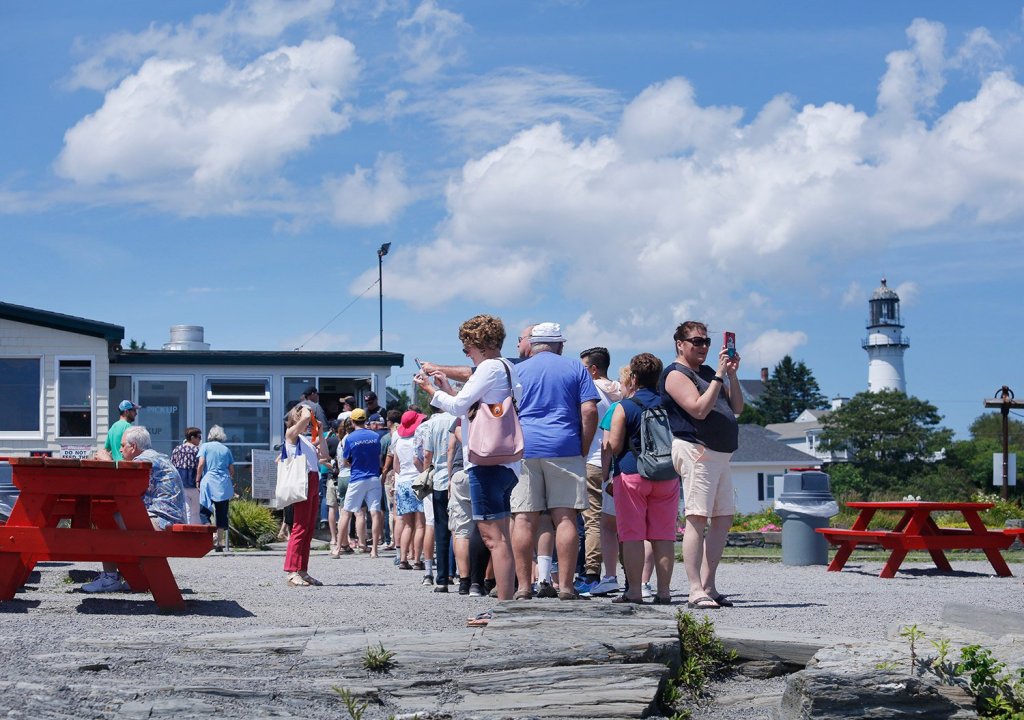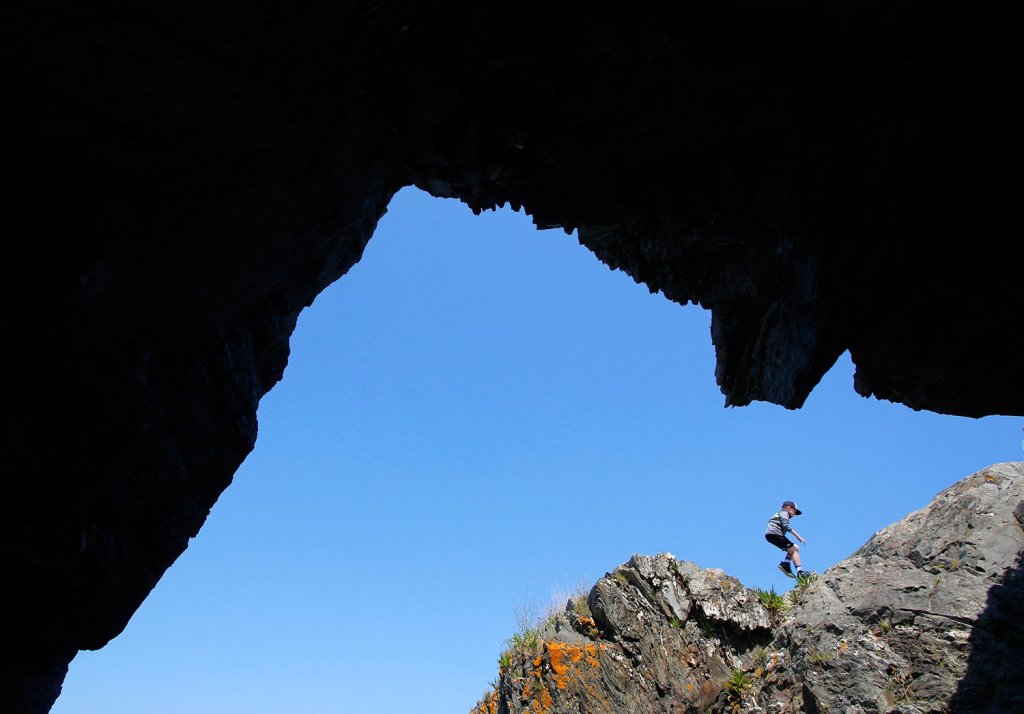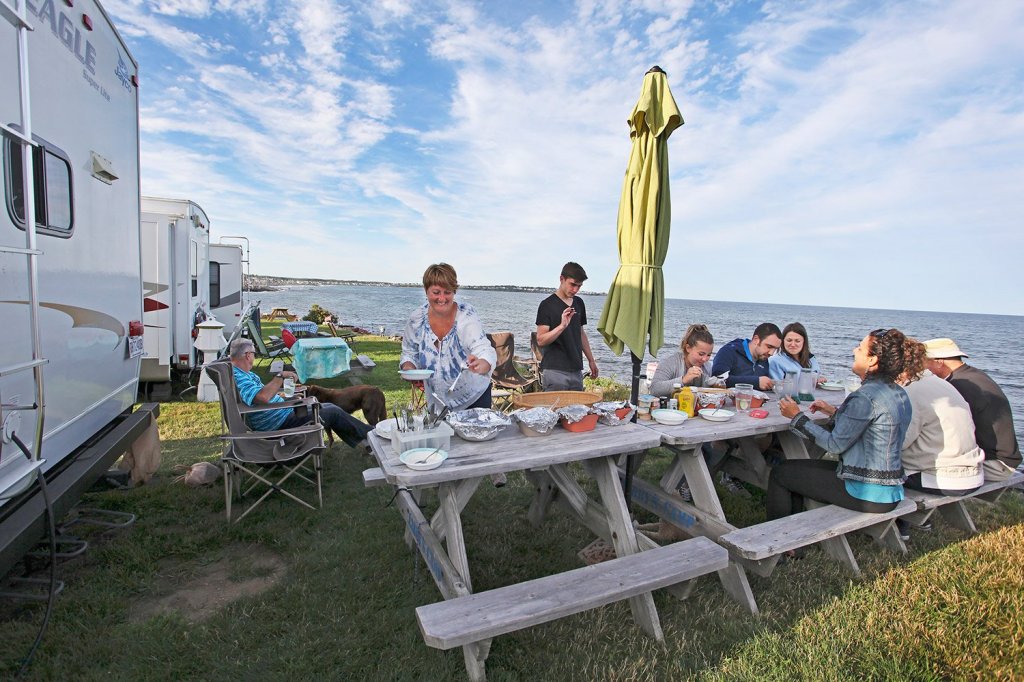More than 1 million drivers were forecast to be on the Maine Turnpike over the Labor Day weekend, capping off what is expected to be another strong summer for the state’s tourism industry.
Official statistics on visitation and revenue are not yet available, but early indicators suggest Maine’s summer economy is on track to follow five years of positive growth for the state, despite staffing challenges that have dogged the hospitality industry.
“We anticipate it is going to be another growth year, from what we have seen so far,” said Jennifer Geiger from the Maine Office of Tourism.
The Maine Turnpike Authority reported 48.1 million toll booth transactions through the end of July, 1.18 million, or 2.5 percent, more than during the same period in 2016, when a record-breaking number of drivers were on the highway. The authority expected 1.15 million vehicles on the highway during the long weekend, and visitors leaving the state will be greeted by mascots Miles the Moose, Clawdette the Lobster and Eco, Poland Spring’s recycling character, who will hand out bottles of Poland Spring water and bags of Coastal Maine Popcorn.
The number of visitors to Acadia National Park is also on track to hit last year’s record high, when the National Park Service celebrated its centennial with extensive promotions and special events at national parks around the country, including Acadia. There were 1.57 million visitors to the park as of the end of July, a 4 percent increase from last year at the same time.
Acadia set a record last year with 3.3 million visitors. There was speculation that visitation would taper off after the centenary passed, but that hasn’t been the case, said spokeswoman Christie Anastasia. At this point, it would take something dramatic to drag the park back to 2015 levels, when 2.8 million people visited, she said.
“At this point, it is looking like it is a new normal,” Anastasia said.
Bright, dry weather and persistently low gasoline prices may have contributed to a successful summer.
Although more visitors are coming to Maine year-round – especially during the fall – summer is still the dominant tourism season, accounting for two-thirds of annual visitors, according to the tourism office. Last year, an estimated 25 million people came to Maine during the summer, a 3 percent increase from 2015. Overall, the tourism economy was worth $6 billion in 2016, the tourism office said. Revenue figures for June through August aren’t yet available, but Maine hotels and restaurants brought in about $298 million in May despite the dreary weather, an 8 percent increase from the same month last year, according to Maine Revenue Services, the state tax agency.
Suzanne Beaulieu, co-owner of the Kebek 3 Motel in Old Orchard Beach, said business was slow during the chilly, damp May and June, but picked up in July. Business at the motel, which caters to Canadian tourists, will probably be on par with last year and she is booked through the middle of September, Beaulieu said. The exchange rate for the Canadian dollar also improved over the summer, drawing more guests, she said.
“It seems like July, the money got better somehow. It has been really good since June,” Beaulieu said.
Although there is an overall positive outlook, some businesses are facing severe labor shortages and have been forced to scale back operations, cutting into their bottom line. Maine’s tight labor market was exacerbated this year by delays in getting foreign temporary workers for local employers in the hospitality sector.
Sarah Diment, owner of the Beachmere Inn in Ogunquit, said she lost business this summer because she couldn’t fully staff the hotel. Rooms that she would have booked in an ordinary year stayed empty and some guests complained about the service. The central problem, Diment said, is that she was unable to hire seven housekeepers on H2B temporary work visas as she had planned. That left the rest of her team scrambling.
“If I’m not able to maintain quality of cleaning rooms because I’m spreading people too thin, you hear that very quickly from your guests. It becomes a quality issue for your property,” she said.
Maine hotels and restaurants were startled this year when they were unable to get the foreign workers they expected because of a federal cap on visas. That cap was raised in July, already into the height of summer business.
Even though it is the tail end of the season, Diment still secured visas for eight housekeepers and cooks who arrived two weeks ago, just as other members of her staff left to go back to college and high school or quit.
“Anyone who is here for the season is starting to peter out, and the year-round people are exhausted. They don’t want to deal with it anymore,” Diment said. Even if business is good over the next two months, it won’t be enough to offset her losses over the summer, she said.
“It has been a long, grueling season,” she said.
Send questions/comments to the editors.


